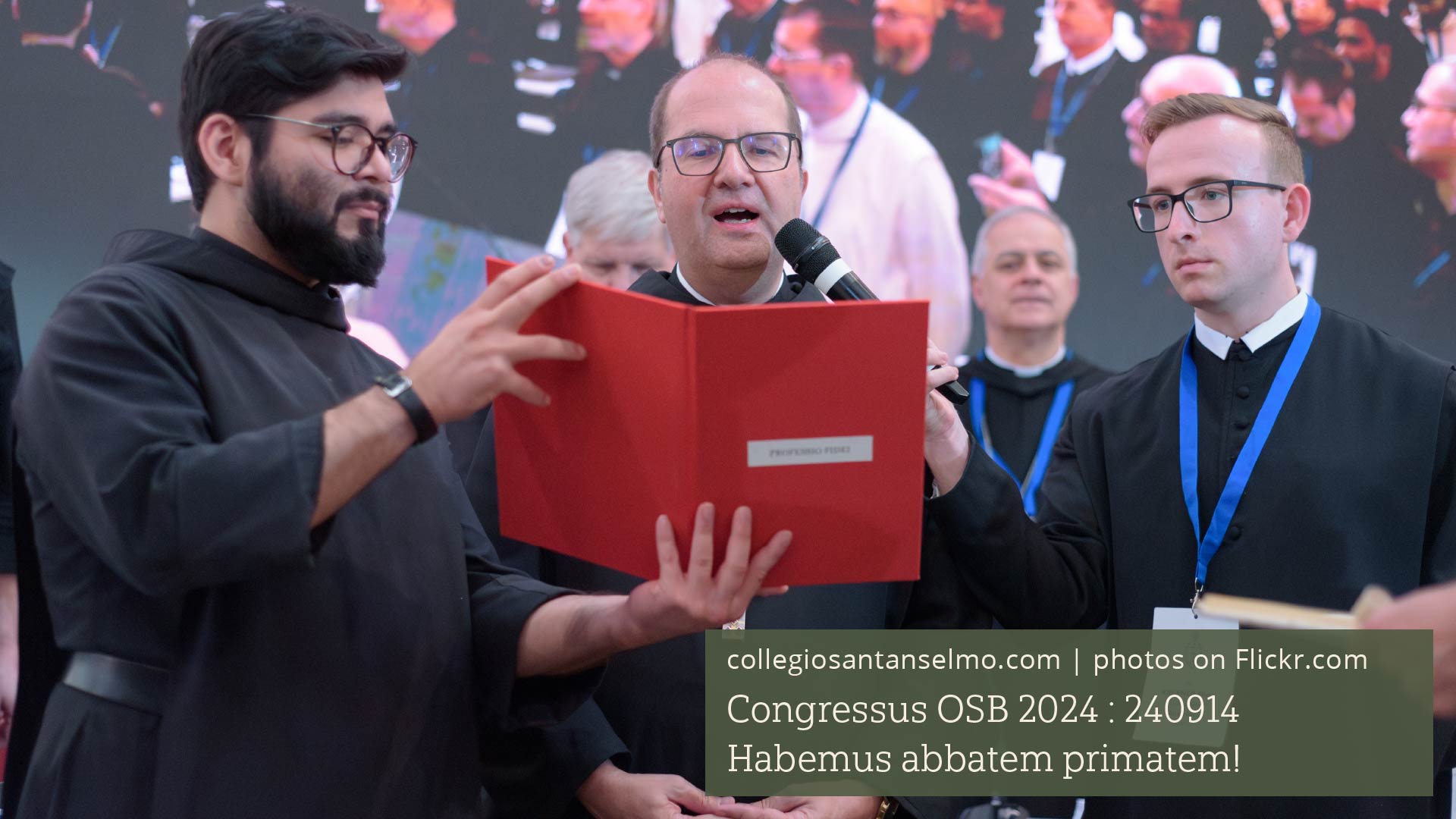On 14 September 2024, Abbot Jeremias Schröder OSB, of St. Ottilien Archabbey in Eresing, Germany, was elected abbot primate of the Benedictine Confederation at the Congress of Abbots meeting in Rome. The Congress usually is held every four years. He is the 11th abbot primate to be elected.
As abbot primate of the Catholic Church’s Benedictine Confederation, Abbot Primate Jeremias will be the unifying head of the world’s 6,000 Benedictine monks and become the abbot of the monastery of Sant’Anselmo in Rome, where he will reside.
Abbot Jeremias Schröder, born in 1964 in Bavaria, joined the St. Ottilien Archabbey in Eresing, Germany in 1984. He pursued studies in philosophy, theology, history, and archivistics at Sant’Anselmo and St Benet’s Hall, Oxford. After returning to St. Ottilien in 1994, he held various roles, including assistant novice master and abbot’s secretary. Elected archabbot and president of the St. Ottilien Congregation in 2000, he became its first abbot president in 2012 after separating the roles. Over his career, Abbot Jeremias has overseen growth, decline, elections, and interventions across monastic communities. Currently residing at St. Georgenberg in Austria, he is actively involved in global monasticism, having held numerous leadership roles and consultative positions, including vicar of the abbot primate.
The office of abbot primate was created by Pope Leo XIII in 1893 to serve the Benedictine community as its liaison to the Vatican Holy See and civil authorities, to promote unity among the various autonomous Benedictine monasteries and congregations, and to represent the order at religious gatherings around the globe. As primate, Abbot Jeremias also will serve as the Grand Chancellor of the Benedictine Pontifical Atheneum of Sant’Anselmo located in Rome, an institution for liturgical, theological and philosophical education.
The Benedictine Confederation is a loose association of autonomous monasteries that follow the 1500-year-old Rule of Saint Benedict. The abbot primate is elected by the abbots of the Benedictine Confederation and usually serves for an eight-year term. His election emphasizes his role as a “servant-leader”, rather than one with direct governing authority.


